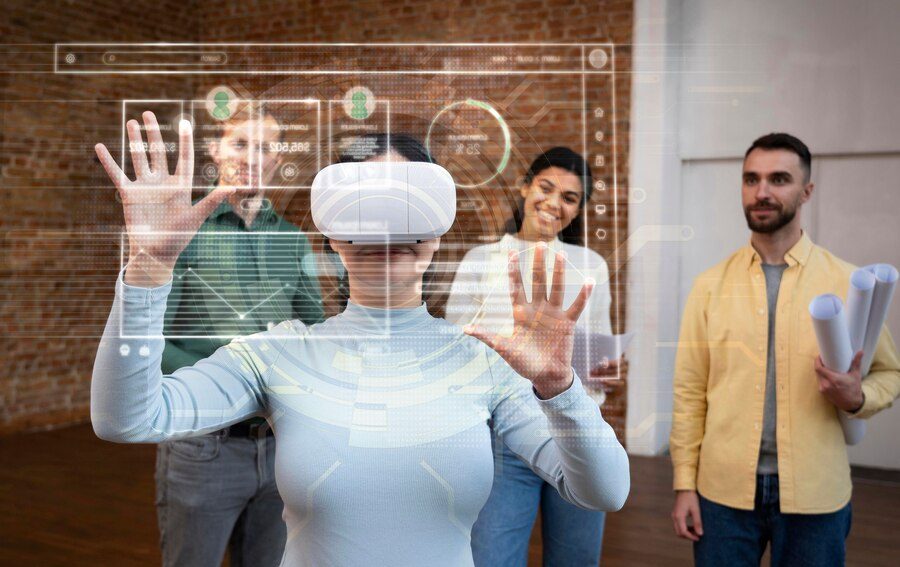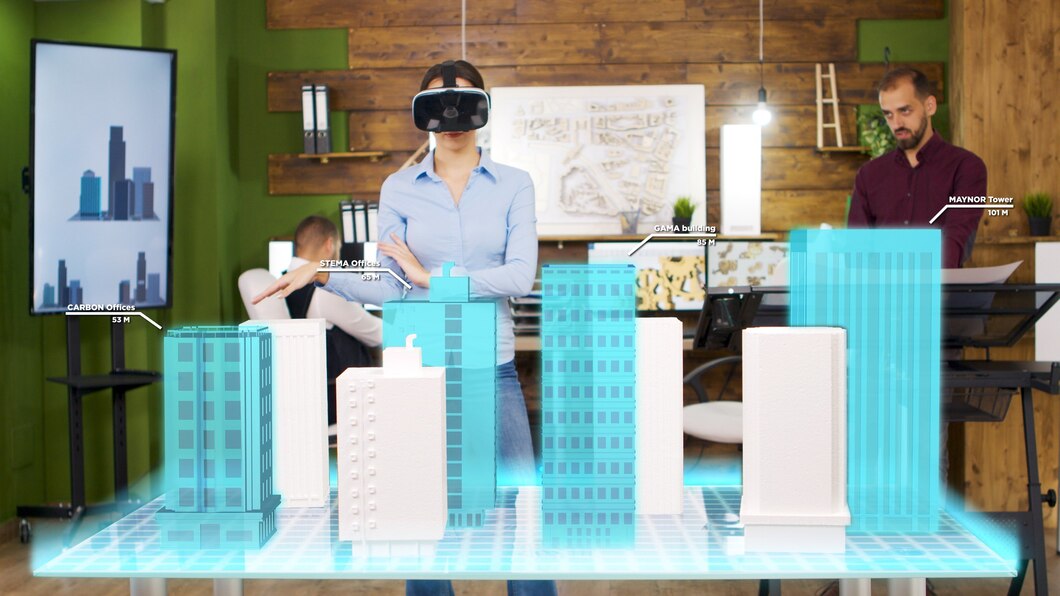How Virtual Tour Technology Is Transforming Business Interactions And Customer Engagement

- Virtual tour technologies are increasingly becoming integral to business strategies to enhance engagement, interaction, and customer experiences.
- The real estate, travel, education, and retail sectors are witnessing significant transformations due to the adoption of virtual tour technologies.
- As a marketing tool, virtual tours offer unique opportunities for storytelling, brand interaction, and customer persuasion unseen in other mediums.
- Innovation and integration of advanced technologies like VR, AR, and AI with virtual tours are expected to evolve the capabilities and applications of these tools.
Technology Advances For Virtual Tours

In the digital age, where online engagement is paramount, the demand for immersive experiences has surged. Whether exploring a museum exhibit, browsing real estate listings, or planning a vacation destination, individuals seek dynamic and interactive platforms that offer a sense of presence and exploration.
Technology advances have played a pivotal role in enhancing the capabilities of 360 virtual tour software, allowing for more realistic and immersive experiences. These advancements include breakthroughs in image capture technology, rendering techniques, and user interface design. High-resolution cameras equipped with fisheye lenses capture detailed 360-degree imagery, while advanced stitching algorithms combine multiple images to create immersive panoramas.
Furthermore, improvements in rendering engines enable smoother navigation and more realistic lighting and textures, enhancing the overall visual fidelity of virtual tours. As a result, users can explore virtual environments with greater clarity and immersion, blurring the lines between the physical and digital worlds.
Enhancing Real Estate With Immersive Viewing Experiences
In real estate, the shift from traditional property viewing to immersive virtual experiences has been nothing short of revolutionary. Offering prospects a way to ‘walk through’ a property via their computer or mobile device brings convenience and expands the realtor’s market to long-distance buyers. The virtual tour is a permanent open house, available 24/7, rain or shine, without scheduling or travel. This feature is invaluable to real estate agents and potential buyers, providing a realistic property representation without geographical constraints.
This technology offers prospective homeowners and renters unprecedented flexibility. Now, they can virtually visit dozens of homes in the time it would take to physically tour one, all while eliminating the need for coordinating with agents or current residents. Furthermore, virtual tours can incorporate a wealth of informational tags and interactive elements, such as clicking to explore different rooms or to learn more about specific features of the property, ensuring a thorough understanding of the space.
Revolutionizing The Travel And Hospitality Sector

For the travel and hospitality industry, an engaging virtual tour can mean the difference between an interested looker and a confirmed booking. In this manner, introducing prospective guests to the ambiance and features of a hotel, resort, or tourist attraction boosts their confidence in the experience awaiting them and significantly influences their booking decisions.
The virtual exploration of potential travel destinations adds an exciting layer to the planning stage. People can visualize their accommodations, assess facilities, and even explore local attractions from their homes, enabling them to make more informed travel decisions. The convenience and detail available through virtual tours have already begun to set a new benchmark in customer expectations, which will likely only grow as technology advances.
The Educational Benefits Of Virtual Campus Tours
Virtual campus tours have emerged as an essential tool for universities and colleges, particularly when reaching out to prospective students who lack the resources to travel for in-person tours. These digital walkthroughs thoroughly preview campus life, academic buildings, dormitories, and other facilities. They play a crucial role in many students’ choices regarding which institution to attend. By democratizing the campus visit experience, educational institutions can tap into a broader, more diverse prospective student pool.
Not only do these virtual experiences offer geographical inclusivity, but they also allow institutions to showcase their campus and culture in a highly engaging way. Immersive virtual tours can be personalized with videos from faculty members, student testimonials, and interactive maps, creating a rich, detailed portrayal of the college experience that can excite and engage future applicants.
Boosting E-Commerce With Virtual Store Walkthroughs
E-commerce platforms continuously look for ways to replicate the tactile, visually rich experience of in-store shopping. This need has been met by virtual tours, which link the ease of Internet shopping and the engaging elements of traditional brick-and-mortar retail.
Customers can ‘walk’ through virtual stores, view products from multiple angles, and access detailed information through clickable hotspots—enhancing customer engagement and potentially driving sales.
Virtual store walkthroughs are not merely a novelty for retailers—they are quickly becoming a competitive edge. These interactive experiences engage users in a narrative journey through a curated space, guiding their path from product discovery to purchase. Analytics from interactions with a virtual tour can give retailers powerful insights into customer behavior and preferences, informing both online and offline marketing strategies.
Virtual Tours As A Marketing Tool

Marketing strategies are constantly evolving, and virtual tours represent one of the latest innovations in interactive customer engagement. A well-crafted virtual tour can elevate a brand’s narrative, provide a novel platform for product or service showcases, and foster a more intimate connection with customers. A virtual tour is not just a nice to have for some businesses, but it’s also an essential component that helps set a brand apart in a crowded market.
Effective virtual tours can tell a story, engage emotions, and immerse users in an experience beyond simple promotion—guiding them gently and subtly from curiosity to interest to action. When strategic calls to action are interspersed seamlessly, such as prompts to make a reservation or explore a featured product, the virtual tour becomes more than just experiential; it becomes a powerful tool for driving actual business results.
Future Trends In Virtual Tour Technology
The possibilities for the future of virtual tour technology are exciting and varied. These technologies can introduce layers of virtual elements into real-world environments, blurring the lines between digital and physical space in unprecedented ways.
Artificial intelligence (AI) will also influence the development of virtual tours, bringing intelligent features like customized tour routes depending on user behavior and preferences. AI-powered data analytics could provide insights into how users interact with these tours, enabling businesses to refine and optimize their offerings. The potential for increasingly sophisticated and individualized virtual experiences grows as these technologies converge.
Read Also:


























Leave A Reply